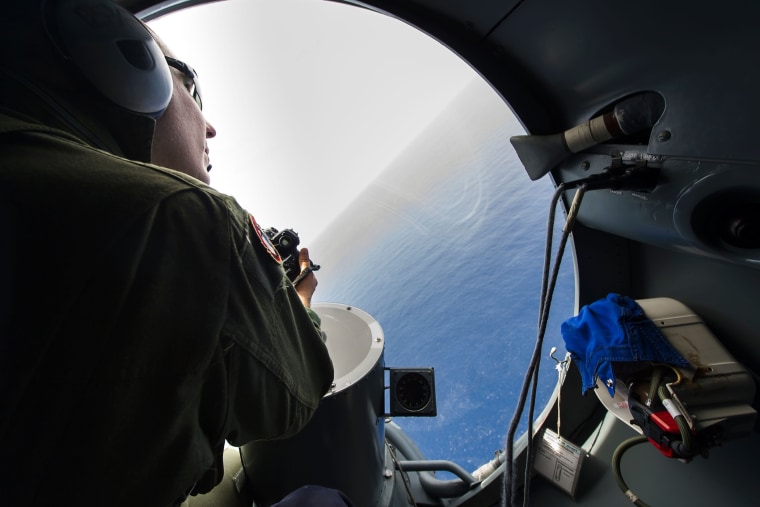Five days after it is presumed to have gone down in the Mediterranean Sea, search teams continue to comb for clues in the fatal crash of Egypt Air flight 804.
There is still no hard evidence of terrorism, and no claim of responsibility, and authorities still don't know what caused the Airbus A320 to vanish off radar.
But the U.S. Navy has now found at least two debris fields floating on the surface of the water and passengers' clothing.
And Egypt's civil aviation minister told NBC News earlier Monday that there is still no sign of the plane.
"We're far away from closing in on the fuselage of the aircraft," Sherif Fathy, said in an interview with NBC News. "What we found is only small pieces, there is a lot to be done in this respect."
RELATED: EgyptAir: Aviation chief says we're still 'far away' from finding fuselage
If the plane was felled by a bomb, experts would not expect the aircraft to fly another seven minutes before going off radar.
"At this point, we do not rule out something nefarious, but we just don't know yet," Homeland Security Secretary Jeh Johnson said recently.
The last automated computer messages from the plane included overheat and smoke warnings and then flight computer failures.
That puts the focus on the forward avionics bay, which sits directly under the cockpit — housing all of the computers that run the plane.
Experts say a fire there could take out critical flight control systems or cause the computers to send faulty signals for systems that aren't actually failing.
RELATED: EgyptAir crash: Death of couple who sought medical help in France leaves three orphans
Meanwhile, there is an urgent search for the plane's black boxes — thought to be amid the wreckage on the sea floor. That wreckage is likely in the deepest part of the Mediterranean Sea, which is 10,000 feet down with a muddy, silty bottom that has swallowed up shipwrecks for thousands of years.
"The water is a big place and finding small things in the water is extremely difficult," U.S. Navy P3 pilot Lt. Drew Hance, who is assisting in the search, told NBC News via phone Monday. "we saw a number of small objects some blue objects floating in the water."
The pingers on the black boxes should have another 25 days of battery life before they cut off. Yet, even if search teams find the boxes, the sea floor it's too deep for humans to retrieve.
Teams will need to send down a remotely operated vehicle to photograph the debris field and try to locate and then retrieve the black boxes.
And lifting the wreckage and bodies to the surface would be nearly impossible.
"The biggest challenge they face right now is listening for and locating those black boxes. And to do that, they need the pinger location. And the clock is ticking on that," said Andrew Craig, a senior project manager with Odyssey Marine Exploration.
This article originally appeared on NBCNews.com.
